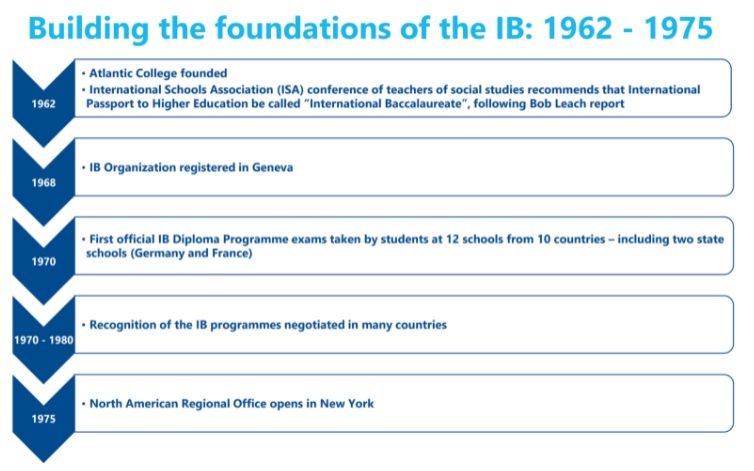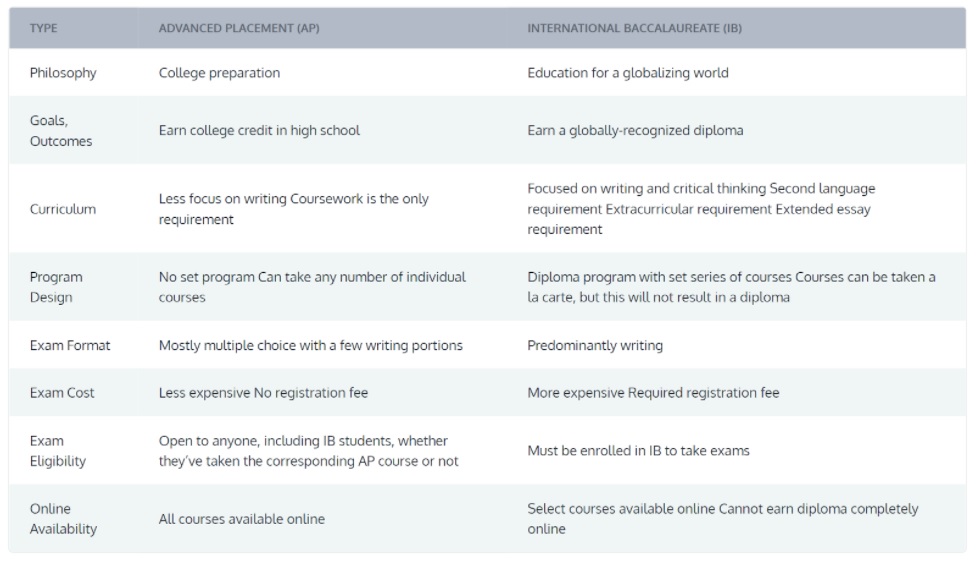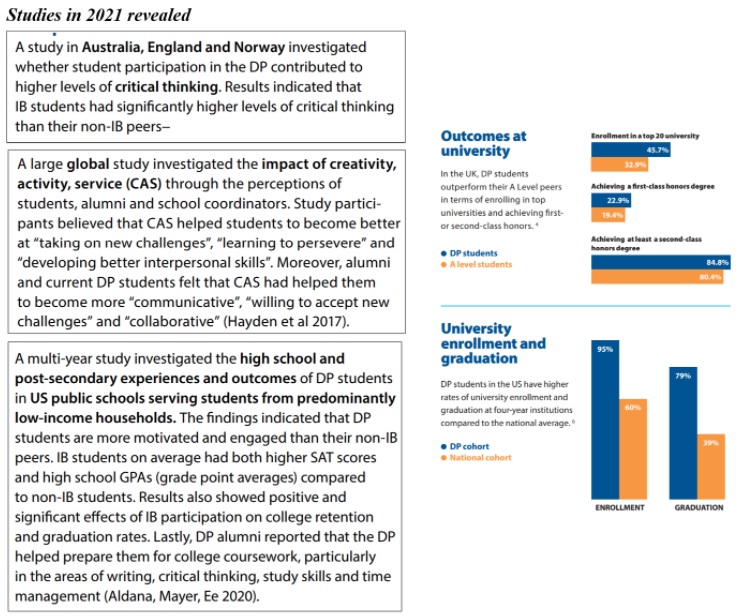Frequently Asked Questions
Answer all of your questions

The International Baccalaureate® (IB) offers a continuum of international education through four challenging, high quality educational programmes to students aged 3 to 19.
ibo.org

ibo.org
Programs offered by the IB
- Primary Years Programme
The PYP focuses on the development of the whole child as an inquirer, both in school and in the world beyond
Age range: 3-12
- Middle Years Programme
Building a solid academic foundation, the MYP develops students’ confidence in managing their own learning and making connections between their learning in the classroom and the real world.
Age range:11-16
- Diploma Programme
A future-ready programme that builds students’ inquiring mindset, fosters their desire to learn, and prepares them to excel at their careers and lead meaningful lives.
Age range:16-19
IB vs other educational certificates
American system (AP) vs. IB: Choosing Advanced Placement or International Baccalaureate
Students and families who are looking into more challenging alternatives to the traditional high school curriculum may come across Advanced Placement (AP) options along with IB. Both programs offer college-level courses to high school students, but there are many key differences that should be examined before determining whether one is a better fit over the other. Noting the similarities and differences between these programs can help students make the right decision for them and their academic and personal goals.
Similarities
- Students get better chances in joining colleges
- Prepares the students for college education
- Students are always engaged in their education
- Can receive college credits upon examination

IB vs IGCSE
- IGCSE is The International General Certificate of Secondary Education, it is a British system that comes under the CIE board (Cambridge Assessment International Education .IB is not a curriculum, but an education framework. The IGCSE has a tailored curriculum for every subject.
- IB guide students through their Diploma programs for their graduation while preparing them for a final assessment at the end of their diploma. Students get mastery in the subjects they chose.
- In IB teachers have to design a curriculum and come up with the best method to deliver the requirements of the subject they teach following the standards and guide sent by the IBO. In IGCSE, teachers don’t have to create curriculum or resources for the students.
- IB offers knowledge and experience in subjects selected by the students. They have to choose one subject from 6 different groups. This offers a lot of flexibility. There are some compulsory subjects like Theory of Knowledge, Extended Essay, and Creativity Action Service. The IGCSE has over 70 subjects to choose from.
- IB, as well as IGCSE, is a tough and demanding curriculum. The IB Internal assessments keep the students on their feet all year long to practice and achieve the required skills. These assessments test the problem solving and oral skills of the students. They emphasize more on the development of the knowledge base.
- IB doesn’t have any fixed textbooks. It provides flexibility to the students by providing recommended readings. IGCSE, have a lot of Cambridge endorsed resources as well as prescribed readings.
- IB helps in the development of language, logical reasoning and analytical skills of the students. IB students build a profile with a lot of extra-curricular activities. IB education promotes global skill-development and an innovative method of learning.
- IGCSE is given starting in year 10 while IB starts at years 11 and 12 (DP1 and DP2).
- Schools offering the IB program must be authorised. Every school authorised to offer IB programmes is an IB World School.
- The first IB programme, the Diploma Programme (DP), was established in 1968. It sought to provide a challenging yet balanced education that would facilitate students; enrolment in international universities by providing an internationally recognized university-entrance qualification, but that would also serve the deeper purpose of promoting intercultural understanding and respect.
- IB students develop strong academic, social and emotional traits that help them accommodate anywhere they go. They are also likely to perform well academically – often better than students on other curricula.

IB graduates also benefit from being extremely well-prepared for college where:
- IB students take college-level courses in high school, which helps them make a smooth transition into higher education.
- Since IB is an international program, colleges around the world recognize IB students and understand the program’s rigour and benefits.
- IB also offers a global alumni network, which allows students to connect with other IB graduates around the world.
- College courses are expensive and time-consuming, so the ability to earn credit while in high school can be extremely valuable.
· According to the International Baccalaureate Programme, graduates are more likely to enroll in some of the highest-ranking universities around the world.
- IB students do not suffer in the transition from school education to college education where IB prepares the students making it a smooth transition .
- IB students face less challenges in college where they have a strong foundation that helps them troubleshoot and cope with the stresses in their college journey.
- IB students are offered college credits.
- International Baccalaureate’s mission is to offer education to all students, so any high school student between 16 and 19 years old can apply for the program.
- IB doesn’t have other requirements, but individual schools may need a minimum GPA to ensure the student can succeed in the program.
- Comparing IB with other programs, like AP, is a good start.
- It is important to have a good understanding of your learning style when deciding if IB is a good fit.
Ask your question
Your email address will not be published. Required fields are marked.
